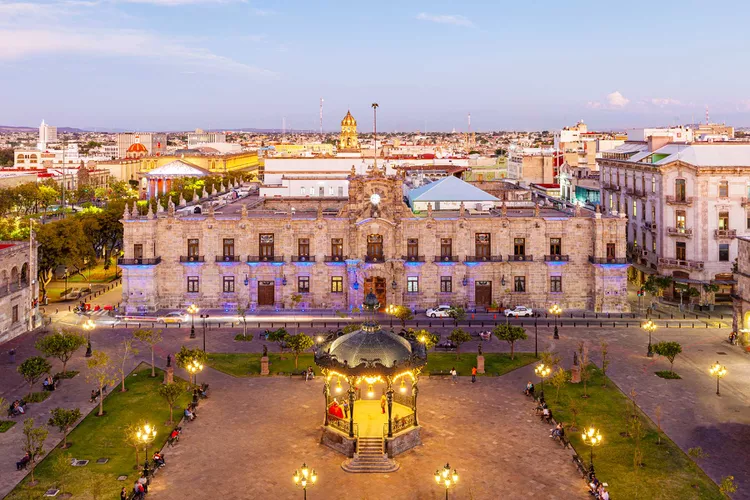2023 Global Vision Awards Summary
1. Jalisco, Mexico – Celebrating LGBTQ rights and cultural diversity.
2. Save Venice – Preserving art and architecture in Venice.
3. Queensland Strait Day Experience – Acknowledging Indigenous heritage and culture.
In the 2023 Global Vision Awards, these places are taking an active role in creating a more progressive atmosphere for visitors and locals alike.
The iBestTravel Global Vision Awards aim to identify and honor companies, individuals, destinations, and organizations taking strides to develop more sustainable and responsible travel products, practices, and experiences. Not only are they demonstrating thought leadership and creative problem-solving, they are taking actionable, quantifiable steps to protect communities and environments around the world. What’s more, they are inspiring their industry colleagues and travelers to do their part.
There is no one path toward a more innovative future. For the 2023 Global Vision Awards, we’re recognizing destinations around the world making strides in bettering their communities – whether that’s through local government legislation, community partnerships, or re-examining the past to guide future decisions. Below, you’ll learn about a trailblazing Mexican state celebrating and codifying LGBTQ rights, an organization in Europe working tirelessly to preserve ancient arts for modern-day use, and a movement in Australia to support Aboriginal culture.
Jalisco, Mexico
Pristine beaches and marquee tequila distilleries have certainly contributed to Jalisco’s popularity, but there’s a less obvious factor in the steady growth of tourism in the Mexican state: its LGBTQ bona fides. “For the past 41 years, we’ve had a visible queer community in our capital, Guadalajara, putting social issues on the table and getting involved in different areas of society, including government, activism, and business,” says Andrés Treviño Luna, Jalisco’s sexual diversity director.
Since taking office in 2018, he has worked to build on that legacy, in both social and legislative terms. Jalisco is now the only territory in Latin America where trans youth can legally change their birth certificates to reflect their gender identity. Moreover, Pride celebrations have spread past Guadalajara (home to some of Mexico’s most prominent queer nightlife venues) into smaller towns and cities, including Sayula, Chapala, and Tequila.
Treviño Luna’s team also recently created an exhibition that spotlights local LGBTQ stories so that visitors and locals can appreciate the fact that sexual diversity has always been a part of Jalisco’s identity. “If we live in a place that is vibrant and free today, it’s in part because the LGBTQ community fought for it,” he says. The crowning moment of Treviño Luna’s work will take place in November, when Guadalajara cohosts the 11th edition of the Gay Games. “Hosting this is proof that there are queer people in every space, and when we link those spaces together, good things can happen,” he says.
Save Venice
For more than 50 years, this New York–based nonprofit has worked to preserve Venetian art and architecture – and has restored some 2,000 works to date. In addition to typical wear and tear on centuries-old frescoes, churches, and manuscripts, Save Venice fights the effects of dampness, humidity, and even salt in the city’s atmosphere, which can corrode through stone, according to director Melissa Conn.
Last year, the group partnered with the Gritti Palace, a Luxury Collection Hotel, to fund conservation projects. Hotel guests can enjoy tailored excursions to view restored works, such as 12th-century Byzantine mosaics in the Basilica of Santa Maria Assunta, on Torcello Island in the Venetian lagoon. Additionally, a recently launched program identifies and restores pre-19th-century works by female artists.
“We don’t want to rebuild, repaint, redo anything,” Conn emphasizes. “We’re showing that monuments, buildings, and artworks made 500 years ago can still be used or enjoyed today.”
Queensland Strait Day Experience
Last year, the Australian state of Queensland announced a trailblazing initiative by returning roughly 895,000 acres of land to its original stewards: the Gudang/Yadhaykenu, Atambaya, and Angkamuthi peoples. This effort is critical in acknowledging the impact colonialism has had on Australia’s land and water and its Indigenous people. The preservation of the Cape York Peninsula’s traditional heritage consequently encourages more enriching experiences, such as “A Strait Day” from Indigenous operator Strait Experiences.
The immersive trip, which starts with a scenic private flight, serves as an introduction to the cultures of the Aboriginal and Torres Strait Islander communities. A stop on Thursday Island includes a dance performance and an intimate feast that showcases the ways regional cuisine has been shaped over hundreds of years by Malay, Chinese, Japanese, and European settlers. Importantly, each experience is guided by locals, who are eager to share their land and culture in their own words, in their own ways.




